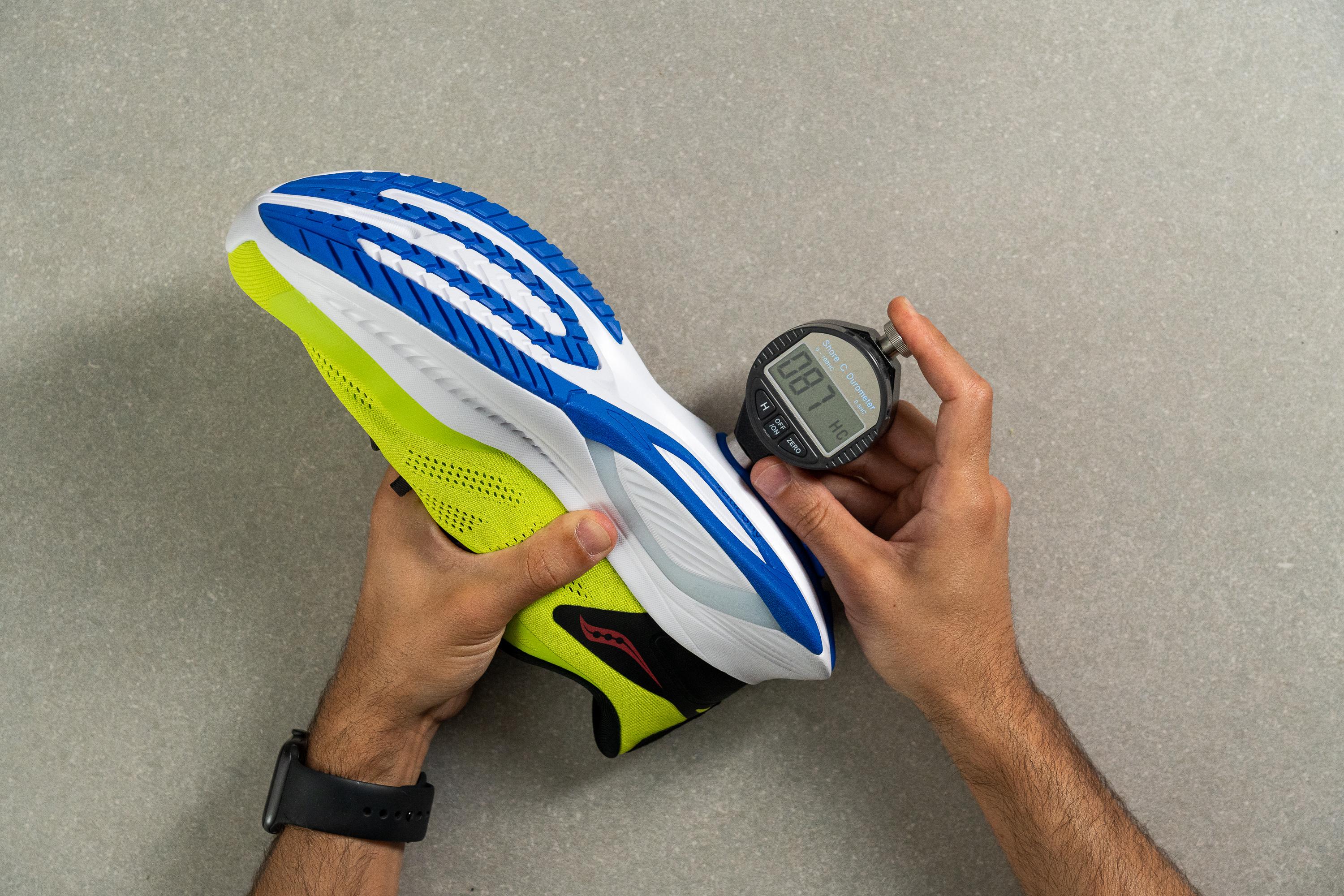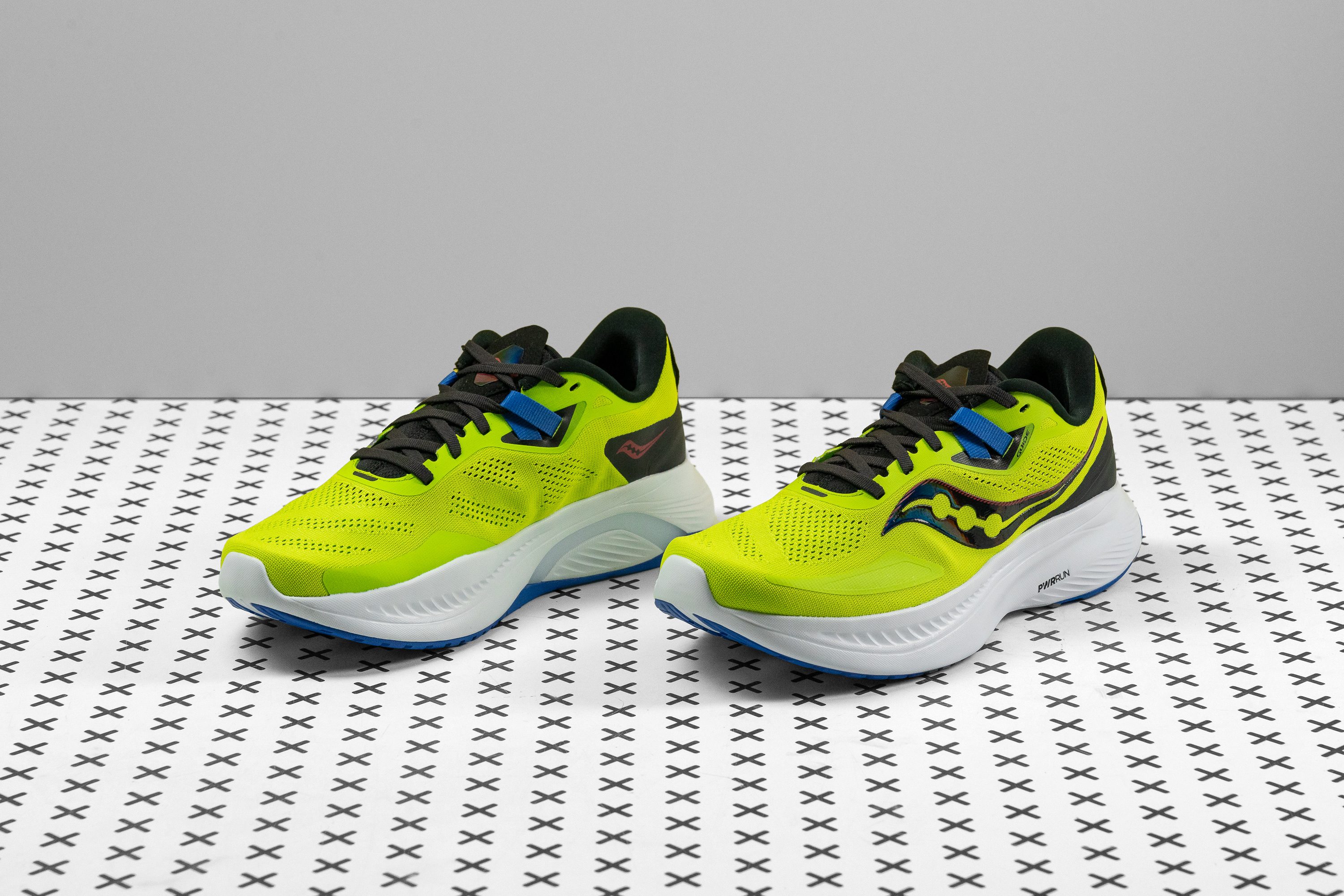Our verdict
Pros
- Unintrusive stability
- Protective cushion
- Rolls smoothly
- Lighter than other Saucony Guides
- Snug and secure foot wrap
- Breezy for summer
- Recycled materials in the upper
Cons
- Lacks bounce
- Too much rubber outsole in the heel
Audience verdict
- Top 30% in running shoes for walking
Comparison
The most similar running shoes compared
+ + Add a shoe | |||||
|---|---|---|---|---|---|
| Audience score | 88 Great! | 81 Good! | 87 Great! | 91 Superb! | |
| Price | £150 | £130 | £110 | £130 | |
| Pace | Daily running | Daily running | Daily running | Daily running | |
| Shock absorption | - | Moderate | Moderate | - | |
| Energy return | - | Moderate | High | - | |
| Traction | - | High | - | - | |
| Arch support | Stability | Stability | Stability | Stability | |
| Weight lab Weight brand | 9.8 oz / 279g 9.5 oz / 269g | 9.8 oz / 278g 9.6 oz / 272g | 10.3 oz / 293g 10.5 oz / 297g | 9.2 oz / 261g 9.6 oz / 272g | |
| Drop lab Drop brand | 7.1 mm 8.0 mm | 8.3 mm 6.0 mm | 9.8 mm 10.0 mm | 4.0 mm 4.0 mm | |
| Strike pattern | Mid/forefoot | HeelMid/forefoot | HeelMid/forefoot | Mid/forefoot | |
| Size | True to size | Slightly small | True to size | Slightly small | |
| Midsole softness | Balanced | Balanced | Firm | Balanced | |
| Difference in midsole softness in cold | Normal | Small | Small | Big | |
| Toebox durability | - | Good | Decent | Decent | |
| Heel padding durability | - | Decent | Good | Decent | |
| Outsole durability | - | Good | Bad | Decent | |
| Breathability | - | Breathable | Warm | Moderate | |
| Width / fit | Narrow | Medium | Medium | Medium | |
| Toebox width | - | Medium | Wide | Wide | |
| Stiffness | Stiff | Moderate | Stiff | Stiff | |
| Torsional rigidity | Moderate | Stiff | Moderate | Moderate | |
| Heel counter stiffness | Stiff | Flexible | Moderate | Moderate | |
| Heel lab Heel brand | 31.6 mm 35.0 mm | 36.0 mm 35.0 mm | 32.9 mm 31.0 mm | 29.9 mm 30.0 mm | |
| Forefoot lab Forefoot brand | 24.5 mm 27.0 mm | 27.7 mm 29.0 mm | 23.1 mm 21.0 mm | 25.9 mm 26.0 mm | |
| Widths available | NormalWide | NormalWideX-Wide | Normal | Normal | |
| Orthotic friendly | ✓ | ✓ | ✓ | ✓ | |
| Season | - | SummerAll seasons | All seasons | All seasons | |
| Removable insole | ✓ | ✓ | ✓ | ✓ | |
| Ranking | #234 Top 35% | #296 Bottom 22% | #173 Top 46% | #33 Top 9% | |
| Popularity | #523 Bottom 23% | #65 Top 17% | #354 Bottom 7% | #219 Bottom 42% |
Size and fit
Size
Saucony Guide 15 fits true to size (118 votes).
Who should buy the Saucony Guide 15
Get the Saucony Guide 15 if you're in search of the following:
- a stability running shoe that's well-cushioned and supportive for daily runs of any distance
- a shoe with unobtrusive arch support that can also cater to neutral runners (a "new age stability shoe")
- a lighter-than-average stability running shoe
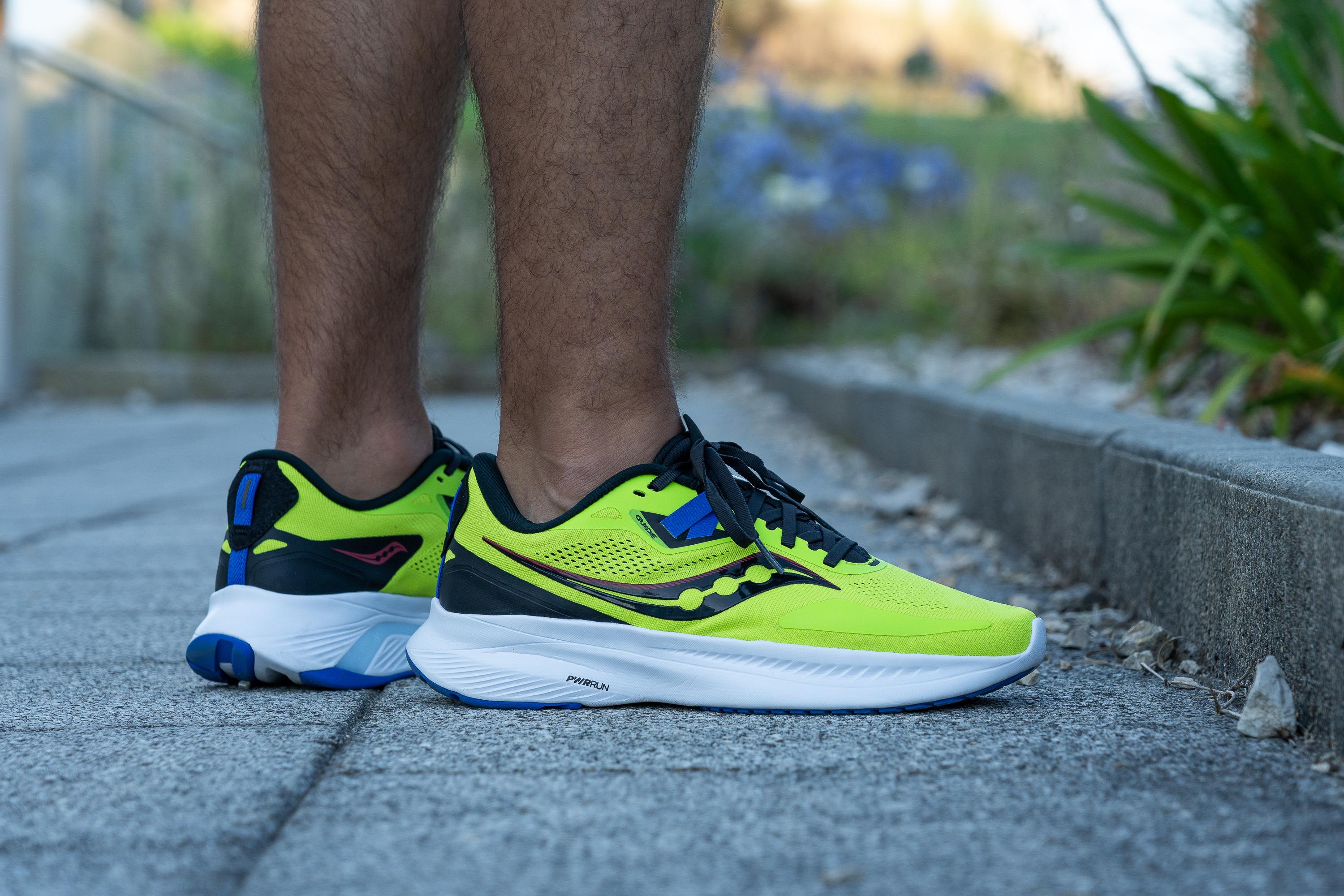
Who should NOT buy it
If you're looking for a stability shoe that would be a softer and more bouncy alternative to the Saucony Guide 15, we encourage you to try Asics Gel Kayano 30. And if you don't mind another brand, we suggest considering the Brooks Launch GTS 10, a supportive speedster.
Saucony Guide 15 vs. 14:
Donning the Guide 15 after its predecessor, we felt some very tangible changes, particularly in the comfort department.
Here is what the shoe's new iteration has to offer:
- more stack (increased by 2.5mm in the rear and forefoot) for a more protective and cushy ride
- a softer sensation because of the plusher PWRRUN foam
- better stability due to the more sculpted sidewalls and deeper underfoot contouring
- less weight (1.2 oz / 34 g lighter) because of the Hollow-Tech stability element that keeps the foot centred without added bulk
- smoother transitions, thanks to the more rockered design
- a more flexible forefoot for unrestrained motions
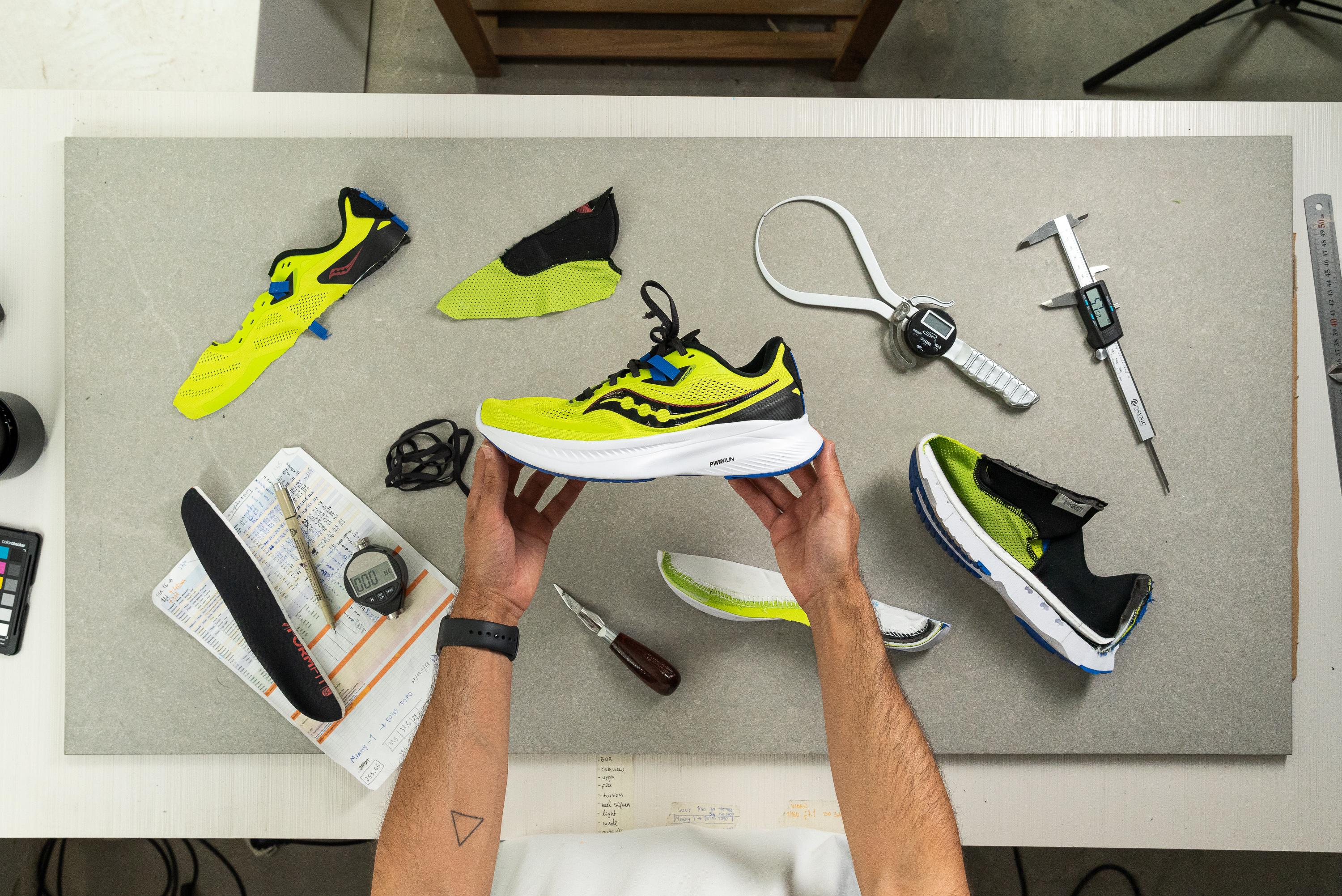
Surefooted steps ahead
Keeping the foot centred, the sidewalls of the Saucony Guide 15 now extend higher up. On top of this, the midsole foam perfects the blend of both softness and rigidity; you don't have to worry about your foot sinking in.
Unlike past versions of the Saucony Guide, we felt like the fifteenth edition offers a more forgiving ride. It's a touch firm, but never harsh.
Measuring the foam softness with our durometer, the shoe turns out to be softer than average by 30%. However, it features a firmer component under the foot arch for stability. We also believe that it's the overly thick rubber outsole that makes the ride firmer with its noticeably firmer-than-average characteristic (7% harder).
The added stack also creates a more protected run. It mutes out all the impact during each landing.
The stack height in the heel, measured together with the insole, is 31.6 mm which puts the shoe into the max-cushioned range. The insole itself is a generous 6.2 mm, which is far above the average 4.7 for most insoles.

You can hardy tell that it is a stability shoe
We are huge fans of Saucony's new approach to stability shoes. The Guide 15 features a Hollow-Tech medial post that is only visible under close inspection.
This stability element is not overbearing at all and we think that even neutral runners can enjoy it.
Delivering easy strides
Because of the shoe's rockered shape, we enjoyed its seamless rolls from heel to toe. This design definitely makes the ride easier om the feet, more efficient, and allowed us to pick up the pace quicker.
The Guide 15 also has a fine balance between flexibility and stiffness which also helps to make toe-offs a little bit snappier.
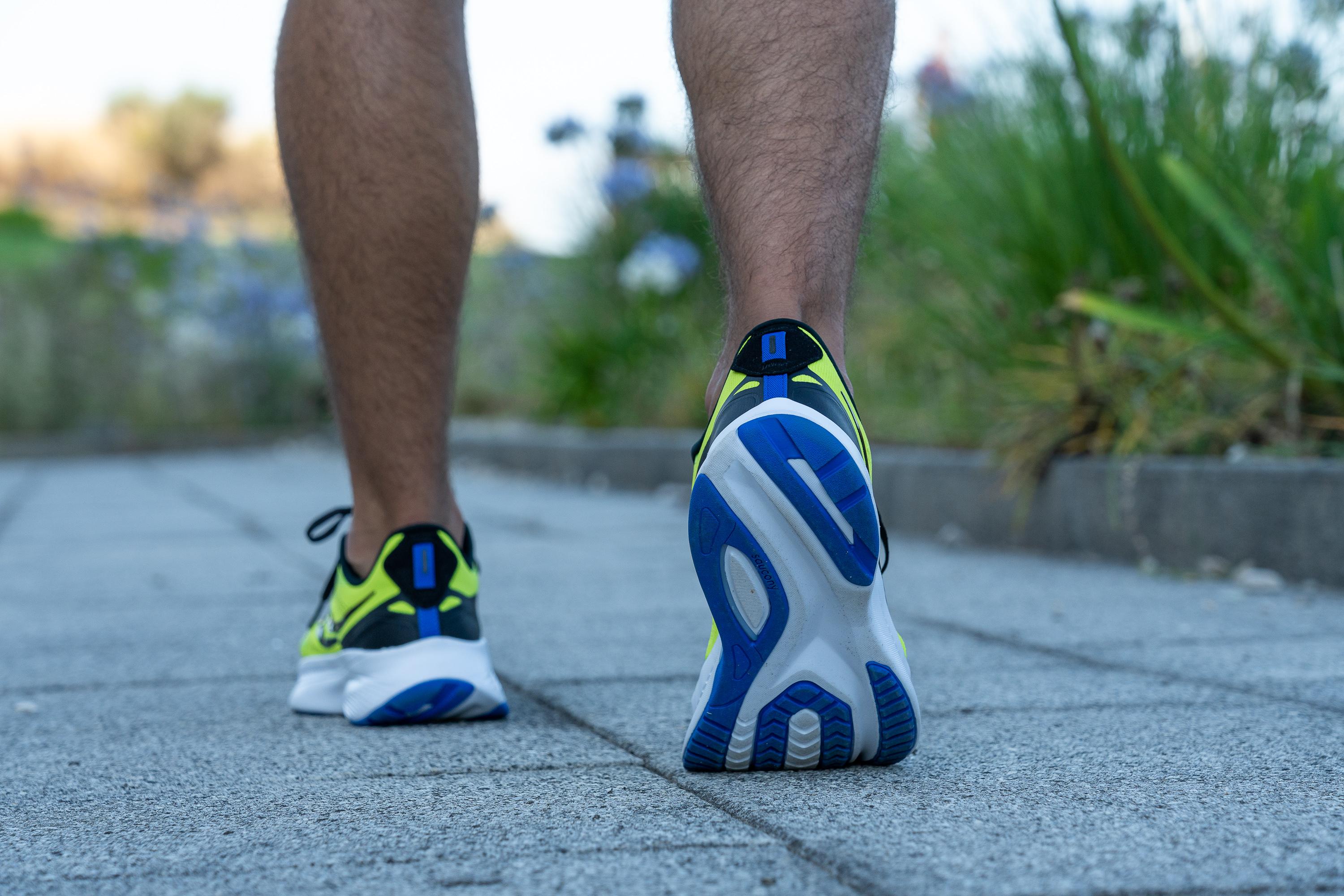
Saucony Guide 15 needs more life
It's neither bouncy nor energetic. Despite Saucony's attempts to make it a softer and bouncier shoe, it's still on the firmer end and lacks that bounce. On the bright side, we think that it's more "alive" than the Guide 14.
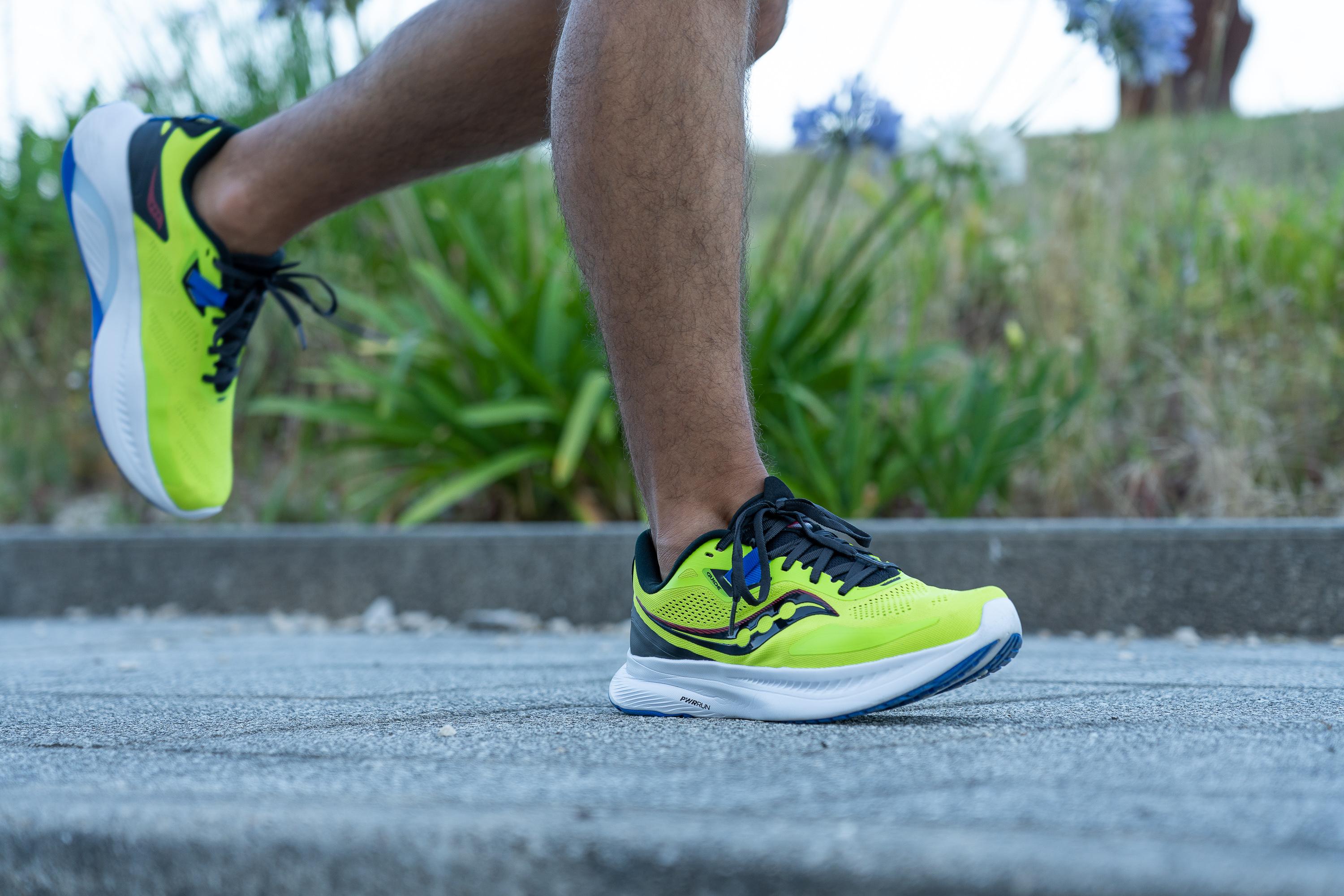
Anything but clunky
On foot and on paper, the Saucony Guide 15 feels light. Especially in contrast to the Saucony Guides of yesteryear.
At 9.3 oz (263 g) per shoe, it is unbelievably light for a stability shoe with a stack height of 30 mm and more. The average weight for this kind of shoe is 10.8 oz (306 g).
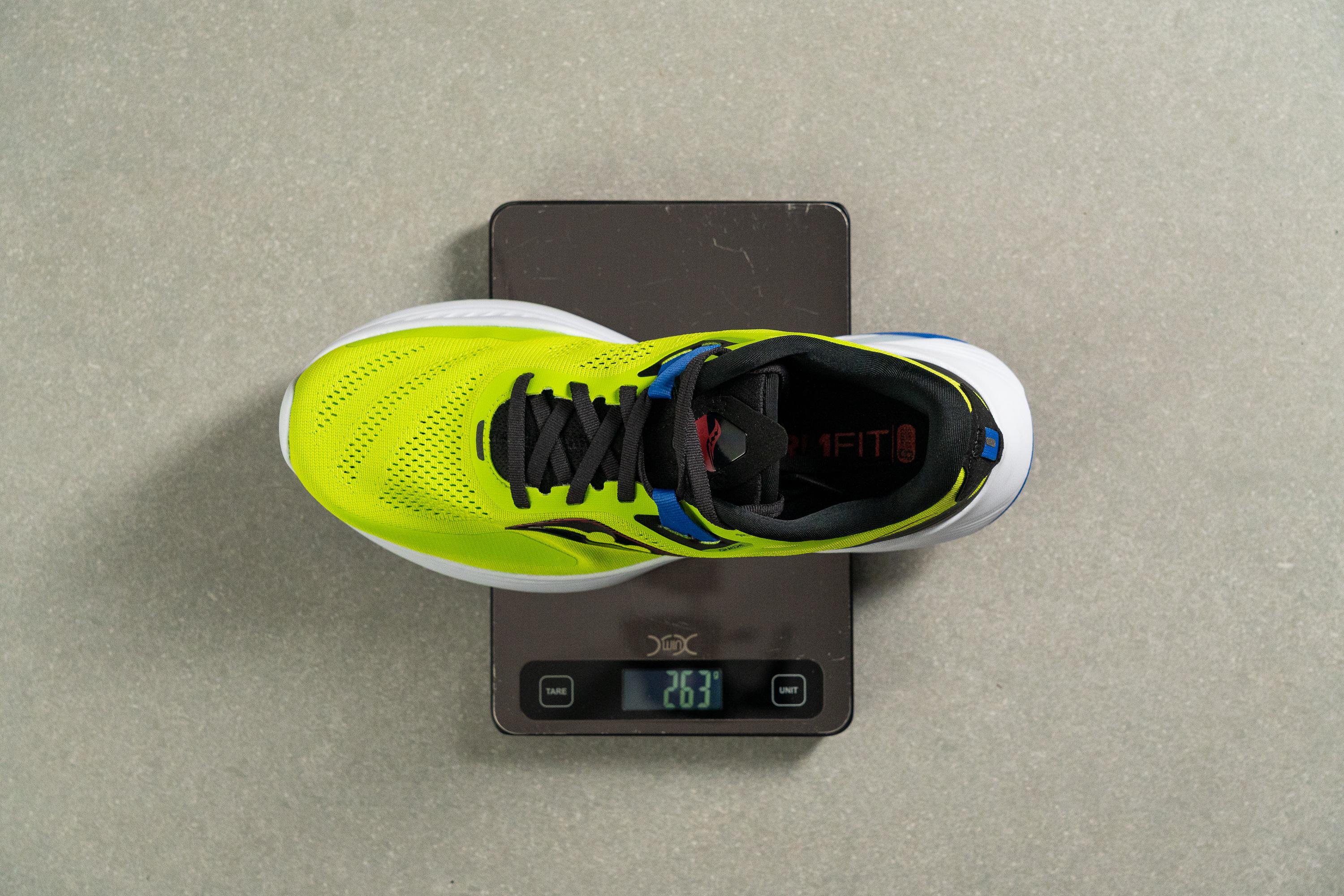
Better fit, less waste
The Guide's new mesh upper is not only made with recycled materials; it also offers a more dialled-in fit. From the heel to the midfoot, the foothold is snug; we never experienced any slips. We didn't even have to cinch the laces down or do a lace lock to feel secure in the Guide 15.
The fully gusseted tongue also does its fair share of holding the foot securely in place, preventing any shifting or sliding.

The tongue is well-padded to protect the instep from any potential lace bites. It is 4.4 mm thick.
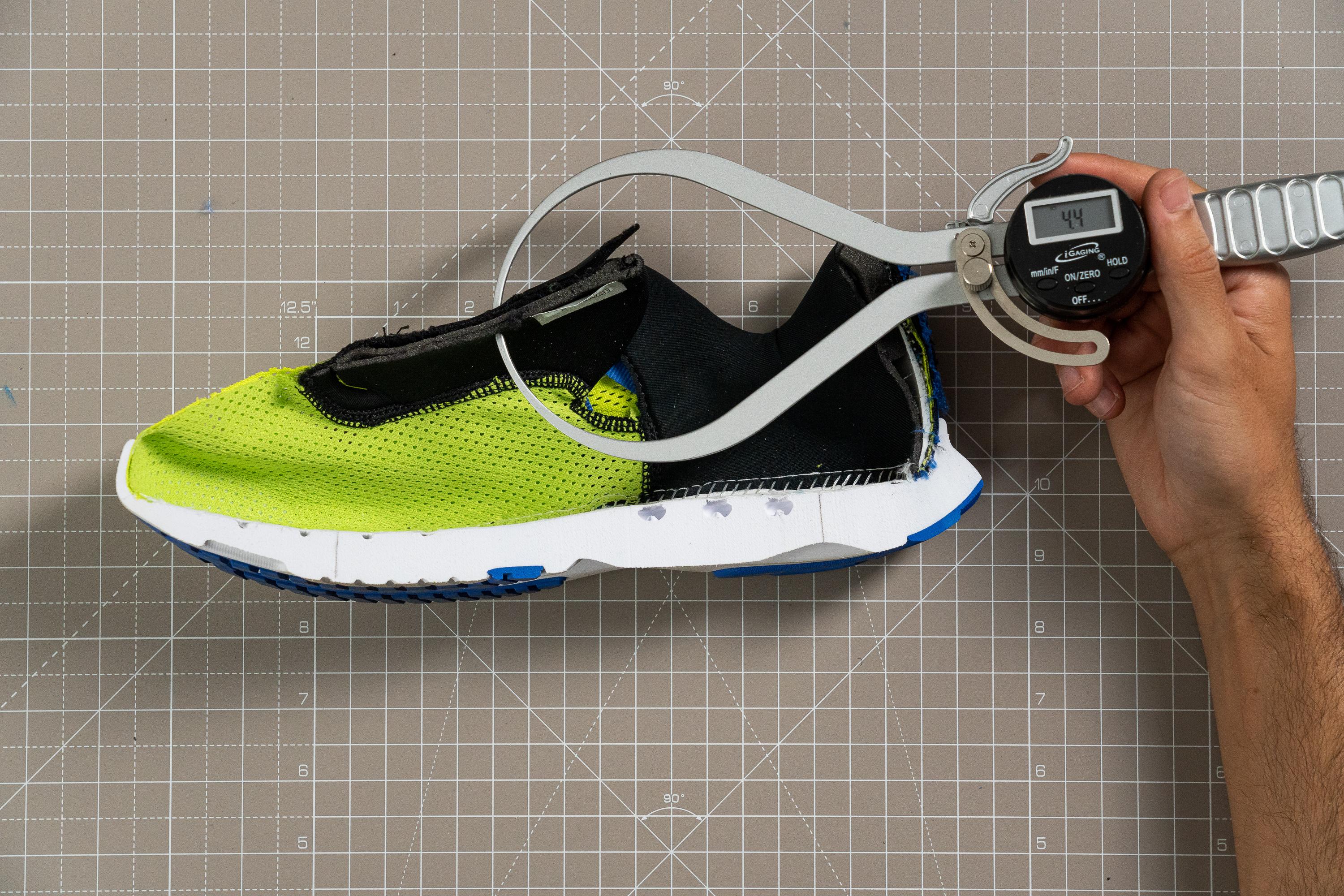
We found the inner mesh so incredibly comfortable that we could wear the shoe without socks. No issues with hot spots or rubbing.
As for the toebox, we measured the forefoot width at 95.3 mm which is a couple of millimetres narrower than the average of road running shoes. It is just right for normal-to-narrow feet but might be snug for a wide footer. Luckily, the Guide 15 is available in a wide option.

Perfect for warms days on the road
Apart from keeping the foot locked in, the upper also lets in the air for a breathable feel during summer runs. You can literally see the shoe's ventilation in action with the help of our smoke machine test. Breathable shoes let the smoke pass much faster.
Guide 15 offers lasting durability
Having clocked 30 miles in the Saucony Guide 15, we are very optimistic about the shoe's long-term durability.
Checking the firmness of the outsole rubber, we found that at 87 HC, it is of above-average density. This is also a contributing factor in the shoe's life expectancy.
